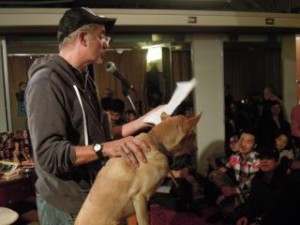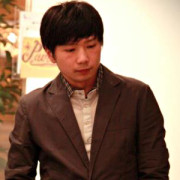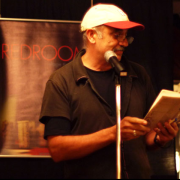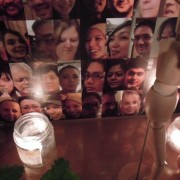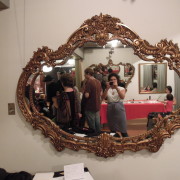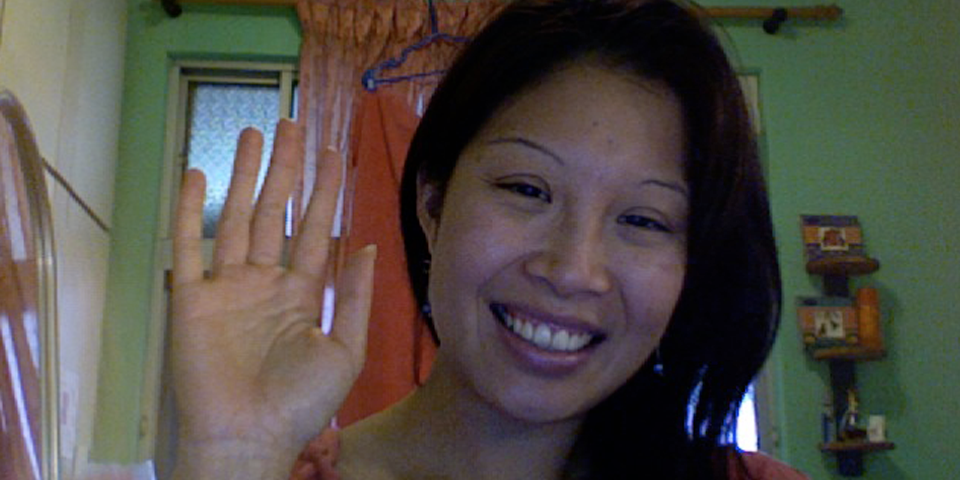 “21st Century Filial Piety”
“21st Century Filial Piety”
12.15.2011
We read about how Chinese culture has been steeped in notions of filial piety for thousands of years, but in modern culture, at least, this stream of respect and care seems to flow both ways. After all, as my friend’s 78 year old French parents recently said to me, your child is forever your child. Growing up, I remember my grandparents bringing carry-on suitcases filled with chilled treats to our poor barren state that lacked Chinese grocery stores at the time. I later heard stories about how after they were swindled out of their life savings by their late lawyer’s wife towards the end of middle age, and went back to jobs of manual labor at a time when they should have been transitioning into long deserved retirement, my grandparents still put aside money to help my parents pay for their first house.
I guess grandchildren are yet another side of the story, too. Still, though, I remember my grandmother peeling grapes for me because I didn’t like the iron residue left on my tongue from eating their skin. Another memory that I’ll never forget is the day when I visited my grandmother in the hospital shortly before she died. Clamoring for her attention, I repeatedly called out her name like an ignored alarm clock ringing away. When her treasured attention was finally turned to me, I fell quiet, not having anything to say. Trying to guess my unvoiced needs, she offered me some of the food from her untouched hospital lunch tray.
Although Taipei’s streets are usually filled with many bikers with kids in tow around 4 o’clock on a weekday afternoon, one fellow biker caught my eye today. Despite the intermittent rain, this slight, silver haired gentleman was perched atop a bright purple bicycle in a charcoal suit and shined dress shoes. His 8 or 9 year old grandson was seated behind him and his backpack seemed to be dangling from one of the bike’s handlebars.
I looked at my own bike’s massive gray baskets, one in front and another in back, thinking ruefully how much this grandfather/grandson team could use one like mine. As we crossed Xin Sheng Rd, I cycled up behind them and turned to address them once we cleared the road. In doing so, I realized that the deceptively heavy backpack, you know, the type that comes with wheels to pull it along the street, was being held in the grandfather’s right hand as he steered the bike with his left.
“先生, 您 要不要考慮買像我這種籃子, 可以把包包放裡面?” (Sir, have you thought about buying a basket like mine so you can put your bag in it?)
The description of “twinkling eyes” has probably been overused in the history of the English language, but I have never met someone who more aptly merited this description. He looked at me with a vibrant smile, lifting the backpack with a steady arm while replying,
“但是它好重!” (But it’s really heavy!)
“還好啦!” (It’s not so bad!)
And as easily as an argument can be won in Chinese with a few vague syllables, this gentleman acknowledged my suggestion with an effusive “謝謝,謝謝” (thank you) and a bow as low as still being perched on his bicycle allowed him.
I just hope his grandson realizes how much he’s benefiting from the 21st century evolution of filial piety.

 As part of the celebration of the third anniversary of the gatherings at Stage Time & Wine, our company was invited to write a word or two or more in the language of choice and to drop it into a basket. Later in the evening, words were drawn from the “well” and read aloud. The slips of paper were then taken to form a collage and a cento. The cento follows:
As part of the celebration of the third anniversary of the gatherings at Stage Time & Wine, our company was invited to write a word or two or more in the language of choice and to drop it into a basket. Later in the evening, words were drawn from the “well” and read aloud. The slips of paper were then taken to form a collage and a cento. The cento follows:

